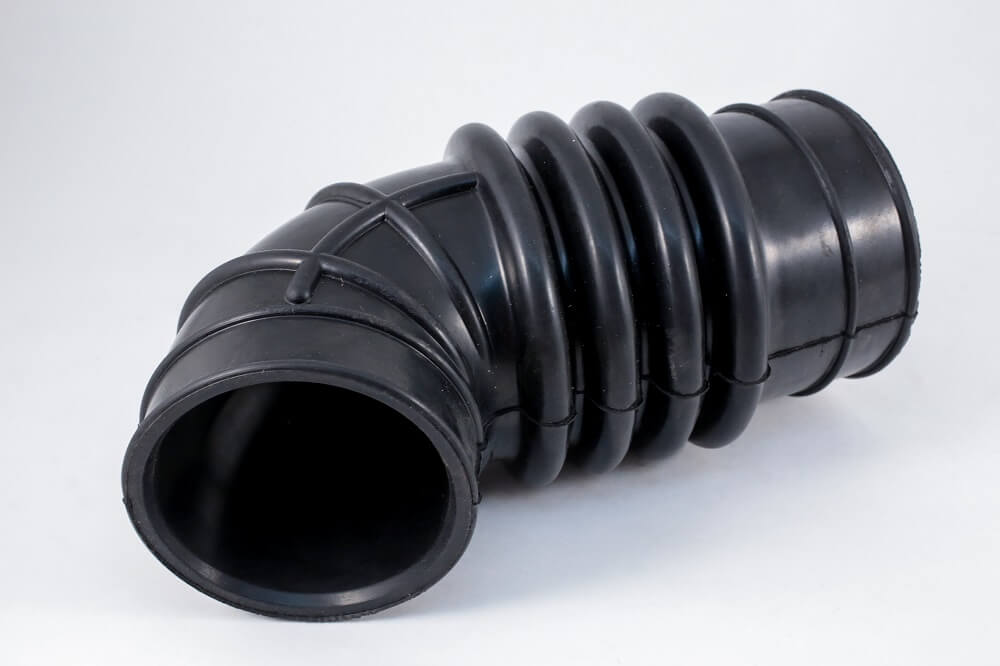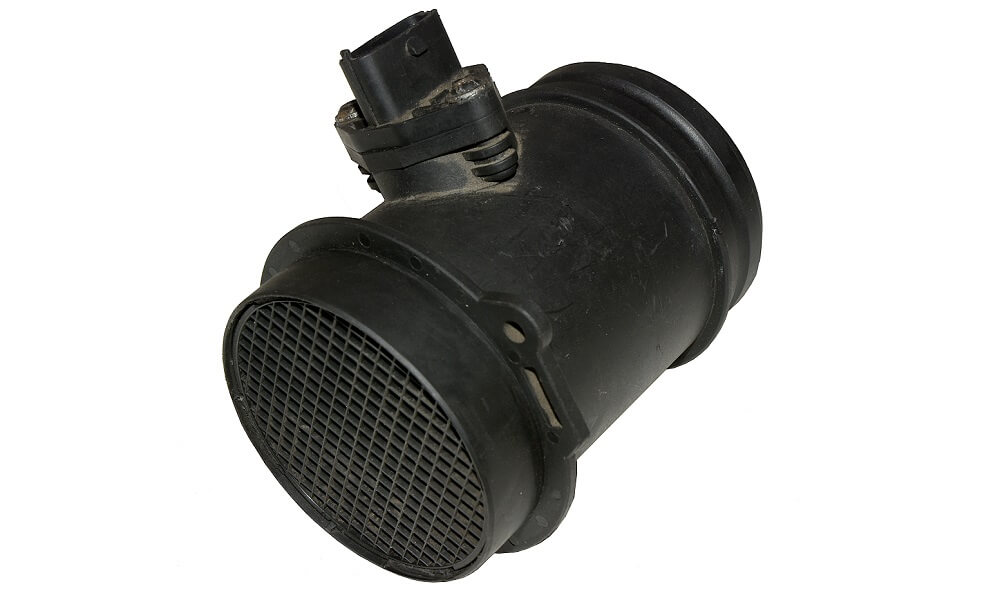Internal combustion engines require an optima air to fuel ratio in order to run smoothly. This is why ECU controls injection on modern vehicles, and makes sure that your engine is getting the right amount of fuel and air at any given time. Too rich, or too lean of a mix will cause issues. If the ratio becomes too lean, it could trigger the P0174 check engine light code and illuminate the check engine light on your dashboard.
This generic fault code is specific to V6, V8, V10, and V12 engines because it indicates an issue on the side of the engine with even cylinder numbers (#2, #4, #6…).
In this article, we’ll cover the meaning of the P0174 code, the causes, symptoms, how to properly diagnose it, and what you’ll need to do to fix it.

What is the P0174 Code?
The P0174 fault code stands for system too lean (bank 2). What this means in simple terms is that the engine is experiencing a ‘lean condition’.
It’s normal for the ECU to make slight adjustments to the air to fuel ratio as you drive, but when running lean is definitely out of ordinary no matter what car you drive. In other words, there’s a very good chance that something is wrong with your engine.
What is a Lean Condition?
A lean condition or a car running lean basically means that the engine isn’t getting enough fuel to operate properly. It can be caused by a number of things, but in simple terms, it just means that the air to fuel ratio has changed in favor of the air.
A lean condition can also cause a series of other symptoms, but we’ll cover them at a later stage in this guide.
What Could Cause a P0174 Code?

There are a few things that will commonly cause the P0174 code. These include a faulty or dirty mass air flow sensor (MAF sensor), vacuum leaks, faulty fuel injectors, faulty or weak fuel pump, faulty O2 sensor (oxygen sensor), or a faulty air-fuel sensor.
MAF Sensor
The most common cause for the P0174 error code is a faulty MAF sensor. The mass air flow sensor is a crucial part of the fuel injection system because it’s responsible for calculating the amount of air coming into the engine. When this sensor is faulty or even dirty, it can send false readings to the ECU which can cause the P0174 and similar error codes.
Vacuum Leaks
Vacuum leaks are also a very common cause for the P0174 code. A vacuum leak in a car means that excess air has entered the engine bypassing the mass air flow sensor. Even though the MAF sensor sends a proper reading to the ECU, the actual amount of air that is reaching the cylinders is much higher. The ECU injects fuel per MAF sensor’s data, which then leads to a lean condition.
Faulty Fuel Injectors
Faulty fuel injectors will also cause the P0174 code. These can get clogged due to dirty fuel or due to vapor from the combustion chamber where the fuel and air mix is burned. This is a somewhat common issue for high mileage cars.
One of the most common issues that leads to clogged injectors is a dirty fuel filter that is no longer doing its job. Once debris and particles that end up in fuel bypass the fuel filter, the next bottleneck is the injector.
Fuel Pump Issues
The fuel pump is the part that sends fuel from the fuel tank to the engine. It pushes fuel under a certain amount of pressure, making the air to fuel ratio in the combustion chamber exactly right. If the pressure is too high, it will cause the engine to run rich, but if the pressure is too low, the engine will run lean and possibly cause the P0174 error code.
O2 Sensor
Oxygen or O2 sensor is used to monitor and regulate the air to fuel ratio. Typically, there are two oxygen sensors in a car, and they do the same thing. They monitor the amount of oxygen at different points of an exhaust system, thus sending specific signals to the ECU to send a specific amount of fuel needed to make the air to fuel ratio optimal. If an O2 sensor is faulty, it will send the wrong information to the ECU and cause a DTC related to the engine running rich or lean such as the P0174 code.
Air-Fuel Sensor
A faulty air-fuel sensor is another part that can cause this specific code to pop up in the ECU. Although it sounds like it’s monitoring the same parameters as the O2 sensor we already mentioned, the air-fuel sensor monitors a wider range of parameters than a regular O2 sensor.
Some cars have both, while some manufacturers rely only on air-fuel sensors to determine the ideal air to fuel mixture. When this sensor sends misleading information to the ECU, it can cause a rich or lean mixture easily, thus causing an error code such as P0174.
Can a Dirty Air Filter Cause a Lean Code?
A dirty air filter can cause a lean condition, but it’s not very common, and it usually won’t cause a lean condition on its own. A dirty air filter can release unfiltered air to the MAF sensor which will eventually trigger a lean code due to the debris that’s preventing it from sending correct readings to the ECU.
What Are the Common Symptoms of P0174 Fault Code?
When it comes to the common symptoms of the P0174 fault code, they include a significant lack of power, rough idle, misfiring engine, and of course, an illuminated check engine light.
An illuminated check engine light will likely be the first symptom you encounter. Although it won’t point out that there’s a problem with the engine running lean, it will tell you that there’s a possible issue, and it needs to be checked. Using an OBD II scanner, you’ll be able to read the error codes stored in the ECU and plan the next steps.
The next thing you’ll notice is that your car lacks power. It won’t be able to accelerate as it did before the P0174 code appeared, and it’s one of the most common symptoms of an engine running lean.
The engine idling roughly is not only a common symptom of the P0174 fault code, but it’s an expected symptom of an engine running with a smaller amount of fuel than needed. The engine misfiring is also an expected symptom when the air to fuel ratio isn’t optimal.
How to Diagnose the Cause of P0174 Code

Properly diagnosing the cause will save you time and money. You’ll need to check the ECU for fault codes, the vacuum lines, MAF sensor, fuel injectors, fuel pump, O2 sensors and/or the air-fuel sensor.
When it comes to diagnosing the cause of the P0174 code, it’s important to start with reading all the codes in the ECU by using an OBD II scanner. Other issues can also cause the P0174 error code to come up, so make sure it’s the only one stored in the ECU.
Next up, you can try disconnecting the MAF sensor, and visually inspecting the connector and the inside of the sensor. There’s a chance that debris got stuck to the sensor wire inside the MAF, which could cause it to send erroneous data to the ECU.
After checking the MAF sensor, it’s time to check the vacuum hoses. While the engine is running, try to listen for any hissing noise. Although it can be difficult to hear, some vacuum leaks can get pretty noisy.
Another way of checking the vacuum hoses is by visually inspecting them. You’ll want to look for cracks or disconnected hoses. In some vehicles, you’ll need to use a mirror and flashlight to inspect every hard-to-reach hose.
Checking the fuel injectors is somewhat odd and will require you to use a long screwdriver. Place the screwdriver on each fuel injector and put your ear on the opposite side of the screwdriver. If you can hear a ticking noise while the engine is running,
it means the injector is working properly. If one or more injectors are silent, it means they’re the one that are causing the P0174 code.
Checking the fuel pump can be done by simply listening to it before starting the car. If you can hear a whining noise, it’s one of the signs that it’s going bad. To check whether it’s weak or not, you’ll need to install a fuel pressure gauge. After the car was idling for a while, write down the readings from the gauge and compare it to the manufacturer’s specification. If the pressure is lower than it should be, the fuel pump is likely what’s causing the issue.
Checking the O2 and/or air-fuel sensor is done by using a multimeter. While the car is at operating temperature, the O2 sensor should fluctuate between 0.1 and 1 volts. If the reading is higher or lower than this, it means the sensor is bad. You’ll also need to check the wiring that’s going to the O2 sensor because it can easily break due to its exposure to excessive heat. The same applies to the air-fuel sensor.
How to Fix P0174 Code

When you’ve determined you’re dealing with the P0174 code, you shouldn’t assume a specific part is faulty before doing proper diagnostics.
The solutions to fixing the P0174 code include cleaning or replacing the MAF sensor, replacing or reconnecting vacuum hoses, replacing faulty fuel injectors, replacing a faulty or weak fuel pump, and replacing faulty oxygen and/or air-fuel sensors. Because these parts aren’t cheap, it’s important to diagnose the issue correctly.
Cleaning the MAF Sensor
If the MAF sensor is what’s causing the P0174 error code in your car, you’ll need to remove it from your car, and before ordering a new part, try to clean it first. In some cases, debris is what caused the MAF sensor to send false information to the ECU which caused this particular error code to come up. Make sure to only use dedicated MAF cleaner sprays. Anything else could leave behind a layer of oil or other contaminants that will render the sensor useless.
After cleaning the MAF, try reconnecting it to the car and see what happens. If the error code disappears, you’ve fixed the issue. If it’s still there, you’ll need to replace the MAF sensor with a brand-new OEM one.
Vacuum Hose Replacement
The next fix includes replacing vacuum hoses. It’s a pretty straightforward process and requires you to disconnect the cracked hoses and replace them with new ones.
Replacing the Injectors or the Fuel Pump
When it comes to faulty/dirty fuel injectors, there are two ways of fixing the P0174 issue. The first way is to replace faulty fuel injectors with OEM ones. The second way includes cleaning the fuel injectors. It’s a cheaper alternative, but it doesn’t mean it will always work.
The fuel pump, whether it’s showing signs of wear or is completely faulty needs to be replaced. Only this will resolve the P0174 code. This also applies for the O2 or air-fuel sensor; if they’re bad, they need to be replaced with new ones for the engine to operate properly.
Does P0174 Clear Itself?
The answer to this question mostly depends on the manufacturer and model. Some vehicles automatically clear fault codes once fixed, while other need the codes to be cleared by using an OBD II scanner. It’s always recommended to clear the code after replacing a faulty part and check the OBD II codes again before using your car.
Can You Drive with P0174 Code?
Yes, if the car is driving normally without any noticeable symptoms, you can drive it, but the P0174 code is considered to be relatively serious, and it should be addressed as soon as possible. Ignoring the P0174 fault code may result in the engine overheating and causing additional damage to the internal parts.
Do You Need To Use OEM Parts When Fixing The P0174 Code?
The air to fuel ratio is much more important than people think. Using Genuine, OEM, or high-quality aftermarket parts will ensure that your engine is running smoothly for years to come. That’s why here at eEuroparts.com we pride ourselves in stocking only the best parts for your European car.
Finding a specific part for your vehicle is simple and only requires you to select your model using the car selection tool on our website. You’ll find a list of all the parts available for your specific make and model.


